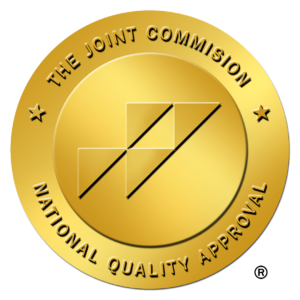Effective leadership is crucial for providing high-quality patient care, fostering a positive work environment, and navigating the ever-evolving landscape of healthcare delivery. Mindfulness is one powerful tool that healthcare leaders can harness to enhance core leadership skills. The practice of mindfulness, rooted in ancient contemplative traditions, has gained recognition in recent years for its ability to promote self-awareness, emotional regulation, and overall well-being. Integrating mindfulness into leadership can contribute to stronger, more resilient, and compassionate leaders in the healthcare sector.
Cultivating Self-Awareness
Mindfulness involves paying attention to the present moment with openness, curiosity, and non-judgment. For healthcare leaders, cultivating self-awareness through mindfulness is foundational to effective leadership. By being attuned to their thoughts, emotions, and physical sensations in the moment, leaders can gain insights into their strengths, biases, and areas for growth. This self-awareness lays the groundwork for making informed decisions and responding thoughtfully to the complex challenges inherent in healthcare leadership.
Emotional Regulation and Stress Reduction
Healthcare leaders often face high levels of stress and pressure, which can impact decision-making and overall job performance. Mindfulness practices, such as meditation and deep-breathing exercises, have shown to reduce stress and enhance emotional regulation. When leaders can manage their own stress and emotions effectively, they create a more positive and supportive work environment for their teams. This, in turn, contributes to a culture of well-being and resilience among healthcare professionals.
Enhancing Focus and Decision-Making
Mindfulness involves training the mind to stay present and focused. In a healthcare leadership context, maintaining focus is essential for making critical decisions that impact patient care, staff management, and organizational strategy. By practicing mindfulness, leaders can enhance their ability to concentrate, avoid distractions, and make well-informed decisions based on a clear understanding of the situation.
Building Empathy and Compassion
Healthcare is inherently human-centered, and influential leaders need to connect with the experiences and emotions of patients and staff. Mindfulness fosters empathy and compassion by encouraging leaders to be fully present and attuned to the needs of others. This empathetic leadership style can enhance patient satisfaction, improve team dynamics, and create a culture of understanding and support within healthcare organizations.
Improving Communication
Clear and compassionate communication is a cornerstone of effective leadership. Mindfulness practices, including mindful listening and speaking, can improve communication skills by promoting active and empathetic engagement. Leaders who practice conscious communication are more likely to foster open dialogue, address conflicts constructively, and build strong team relationships.
Cultivating Resilience
Healthcare leadership often involves navigating uncertainty, adapting to change, and addressing unforeseen challenges. Mindfulness contributes to resilience by helping leaders develop an open, flexible mindset and able to bounce back from setbacks. Resilient leaders inspire resilience in their teams, creating a work environment that can adapt to change while focusing on the well-being of staff and patients.
Promoting a Positive Organizational Culture
Mindfulness is not only an individual practice but can also influence the culture of an entire organization. Leaders who embrace mindfulness contribute to a positive organizational culture that values well-being, collaboration, and continuous improvement. This, in turn, attracts and retains talented healthcare professionals who are dedicated to the organization’s mission and values.
The power of mindfulness for stronger leadership in healthcare is real. Integrating mindfulness as a best practice allows healthcare leaders to create a more positive and compassionate work environment. Ultimately, mindfulness can contribute to improved patient outcomes and the overall well-being of teams. As the healthcare landscape continues to evolve, the mindful leader stands out as a beacon of stability, compassion, and effectiveness in navigating the complexities of healthcare leadership.
Are You Looking For New Healthcare Employees?
Bluebird Staffing is the proud partner of healthcare organizations and professionals seeking recruiting assistance. Talk with our team today to find out how we can help.



